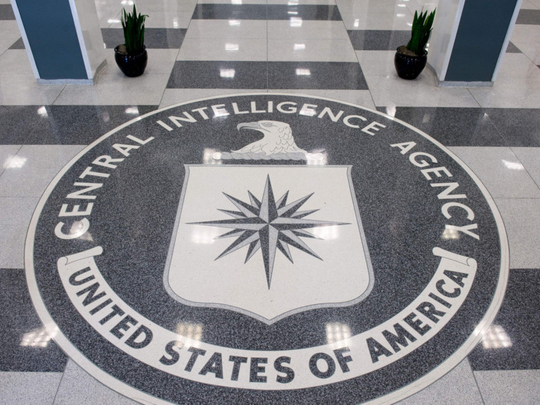
WikiLeaks’ revelation last week of nearly 8,000 documents that purportedly reveal secrets about the CIA’s tools for hacking into digital devices around the world set the media abuzz.
“Americans learnt that the CIA has tools that can hack smartphones, computer operating systems, message apps, Wi-Fi networks. That blockbuster revelation came courtesy of WikiLeaks, the organisation last in the headlines for its role in the purported Russian leaking of emails to tilt the November 8 election to President Donald Trump,” said the Chicago Tribune in an editorial, before analysing the damage caused by the leaks and castigating Julian Assange’s role in it.
“First reaction: We sure hope the CIA has those abilities, given that terrorists around the world need to communicate somehow. Second reaction: That doesn’t mean we want the world to know how the CIA does its job. WikiLeaks’ publishing of the CIA’s spying methods is a reprehensible trespass on American security. Under the guise of internet security or privacy or whatever phoney justification WikiLeaks claims, the secret-busting organisation now hands over the CIA’s master keys to cyber criminals, spies and other foreign malefactors... Who decides that the alleged benefit of revealing this trove of information outweighs the risks to US national security? Presumably that falls to WikiLeaks’ Supreme Hacker Julian Assange. He’s still holed up in the Ecuadorean Embassy in London, sheltered from extradition to Sweden over allegations that he raped a woman there. He also fears extradition to the US on potential espionage charges. By all means, let’s have a debate. But the correct place for that is in Congress, behind closed doors to protect secrets that can — and now will — be exploited by America’s enemies.”
The New York Times hoped that the media will eventually sorts things out, as it has belatedly started to do with the supposed CIA cache. “But by then, the initial burst of misinformation has spread. On social media in particular, the spin and distortion continues unabated. This time around, for example, there are widespread claims on social media that these leaked documents show that it was the CIA that hacked the Democratic National Committee, and that it framed Russia for the hack. As with most misinformation campaigns, the dust that is kicked up obscures concerns over a real issue. Device and information insecurity, overzealous surveillance by governments — these are real concerns that call for real attention. Yes, we need to have extensive and thoughtful discussion of these topics. But that’s not what the WikiLeaks misinformation campaign has given us.”
The San Jose Mercury News focused on the fallout of the leaks on a critical sector of the US economy. “Contrary to the powerful impression left by WikiLeaks’ release of CIA documents last week, privacy is not dead. But that’s cold comfort to the technology industry: The greatest threat to its future — even greater than Donald Trump’s trade and immigration policies — is loss of trust. WikiLeaks’ claims that the CIA has acquired an array of cyberweapons threatening the security of smartphones, smart TVs and even automotive computer systems are largely overblown. But the disclosures once again raise questions about the vulnerability of tech devices, particularly as self-driving cars enter our lives. Privacy and security are crucial to every tech firm in Silicon Valley and America. The industry isn’t doing nearly enough to prove to consumers that their core products are safe from hackers — including our own government.”
The Toronto Star meanwhile observed that the WikiLeaks revelations were “not as shocking as the information leaked four years ago by whistle-blower Edward Snowden” — they simply showed that the CIA has developed sophisticated software tools to break into smartphones, laptops, TVs and other devices. “The documents don’t show that the spies have actually done all this — either against US citizens or against foreigners. They’ve just developed the ability to do it, if they choose... [But] more worrisome, the track record of US and other spy agencies hasn’t been good when it comes to safeguarding the privacy of ordinary citizens. The drive to build up a robust surveillance state over the past decade and a half has been so strong that countervailing attempts to protect civil liberties are constantly lagging behind. That has been most obvious in the United States, where the lingering trauma of 9/11 fuels a desire for security above all [a trend that is only growing under Donald Trump]. But Canada has been part of the same trend, as a ruling last November by a Federal Court judge amply demonstrated.”




_resources1_16a31069e4e_small.jpg)






